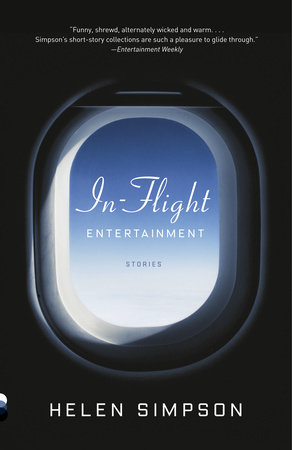In-Flight Entertainment Reader’s Guide
By Helen Simpson


1. What would you say are the main themes of these stories? Which stories best explore those themes?
2. What traits do many of the characters share? Which character(s) would you like to spend more time with?
3. In general, what is Simpson’s attitude toward her male characters? Does she treat them differently than the females?
4. In the title story, Jeremy says to Alan, “‘I don’t care what you do.’” . . . “‘I don’t care about you. You don’t care about me. We don’t care about him.’ He gestured in the direction of the dead man. ‘We all know how to put ourselves first, and that’s what makes the world go round.’” (page 16) What do you think Jeremy—or Simpson—would prefer Alan to do?
5. By the end of the story, how has the flight affected Alan?
6. In “Squirrel,” how does Simpson use Henry VIII to make a point?
7. What’s the moral of “I’m Sorry but I’ll Have to Let You Go”?
8. In “Scan,” the protagonist considers her existence: “What about before you were born, though; before you were conceived? Well, you can’t remember it so it can’t have been too bad, she told herself; presumably it will be the same after you’ve died. The trouble with this idea was, before you’ve been born you’ve not been you; but once you’ve been alive you definitely have been you; and the idea of the extinction of the you that has definitely existed is quite different from the idea of your nonexistence before you did exist.” (page 44) Where will this thinking lead her?
9. How does Simpson use first-person narration in “Ahead of the Pack” for a humorous effect?
10. Why is Patrick hearing his daughter’s thoughts in “Sorry?”? Is he really hearing them, or is something else going on?
11. Several of Simpson’s characters, like the narrator of “The Tipping Point,” are commitmentphobes. What connection does Simpson make between fear of commitment and global warming?
12. What exactly is the tipping point in that story?
13. In “Geography Boy,” how does the apocalyptic thinking of the Middle Ages relate to current thinking on climate change?
14. Ultimately, what do you think will happen to Adele and Brendan? Will they stay together?
15. Other than their choice of television programming, what connects the people in the three rooms in “Channel 17”?
16. Whose story is the narrator really outlining in “Homework”? Is it what she wishes were true or just a flight of fancy?
17. The tone of “The Festival of the Immortals” is quite different from the stories that came before it. What does it have in common with them?
18. How likely do you think it is that events similar to those in “Diary of an Interesting Year” will come to pass? Do you think Simpson believes they might?
19. After having read the somewhat dire stories that led up to it, what did you make of the optimism of “Charm for a Friend with a Lump”?
Just for joining you’ll get personalized recommendations on your dashboard daily and features only for members.
Find Out More Join Now Sign In